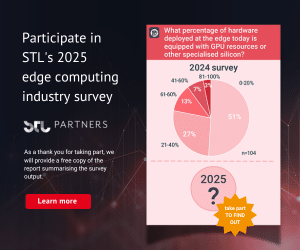Eclipse Foundation announces two new efforts for open source OS at the edge

The Eclipse Foundation has recently announced the launch of the Oniro project and working group, built as a result of its recent partnership with OpenAtom in September.
According to the Foundation, Oniro aims to become a transparent, vendor-neutral, and independent alternative to traditional edge and IoT (Internet of Things) operating systems (OS).
“It is born for device collaboration at the edge, to be hardware architecture-independent, to create a swarm intelligence, and to enable ambient computing,” explained Gianluca Venere, Chief Innovation Officer at SECO.
“For more than 40 years SECO has been designing and manufacturing innovative products and services for OEMs and we strongly believe that Oniro is a game-changer in supporting our customers to the digital transformation,” he said.
The new infrastructure will be built using OpenHarmony, an open-source OS hosted by the OpenAtom Foundation.
“[Oniro] represents a unique opportunity to develop and host a next-generation operating system to support the future of mobile, IoT, machine economy, edge, and many other markets,” said Mike Milinkovich, executive director of the Eclipse Foundation.
To support the new OS, the Eclipse Foundation has also established a new working group, which will reportedly provide the vendor neutrality and legal framework necessary to enable transparent and equal collaboration between firms.
“We’re very proud to be hosting a major European open source project with worldwide contribution aiming to develop an independent OS,” commented Gaël Blondelle, vice president of European ecosystem development at Eclipse.
“To achieve this, we want to welcome developers and companies from Europe and the rest of the world to join our working group at the Eclipse Foundation and bring this groundbreaking project to life together,” he concluded.
Eclipse joins Software-Defined Vehicle working group
The second initiative announced by the Foundation in the last week, the Software-Defined Vehicle working group will aim to build a vendor-agnostic, open-source ecosystem for automotive software development.
According to Eclipse, the initiative will enable vehicle manufacturers and suppliers to put software at the center of vehicle development, with hardware considerations to follow.
In other words, the working group will set the foundations of an open ecosystem for deploying, configuring, and monitoring vehicle software safely and securely.
Companies will also be able to use the system to develop mobility services as well end-user experience improvements.
The Software-Defined Vehicle working group already counts several industry leaders, including Bosch, Microsoft, and BlackBerry, among others.
“With digital technologies unlocking the future of accessible, sustainable, and safe transportation experiences, mobility services providers are increasingly looking to differentiate through software innovation,” explained Ulrich Homann, corporate vice president, and Distinguished Architect at Microsoft.
The Eclipse Foundation is now encouraging additional vehicle manufacturers and technology companies to join the project.
“By standardizing the development, deployment, and management of software-defined vehicles through collaboration in the open-source space, businesses can bring tailored mobility solutions to their customers faster and can focus on innovations,” Homann concluded.
Article Topics
automobile | Eclipse Foundation | IIoT | industry standards | Microsoft | open source | operating system




Comments